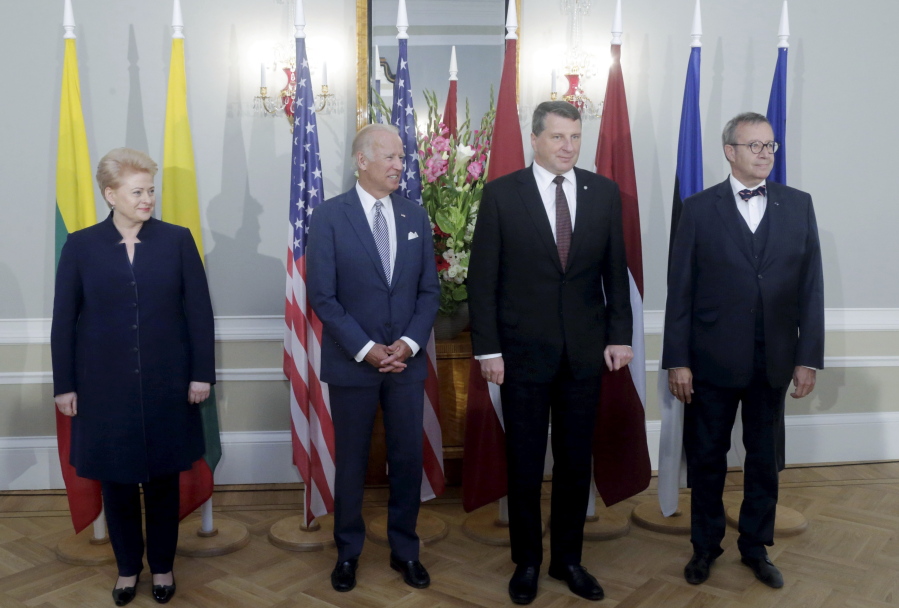RIGA, Latvia — Vice President Joe Biden suggested Tuesday that Donald Trump doesn’t know what he’s talking about on foreign policy and told U.S. NATO allies to ignore him.
“Don’t listen to that other fellow. He knows not of what he speaks,” Biden said in a speech to Baltic leaders here. He paused, then said, “And he doesn’t know of what he speaks.”
Biden never mentioned Trump by name. But his audience, smiling with approval, clearly understood the reference to the Republican presidential nominee’s frequent description of the U.S. commitment to NATO’s mutual defense pact as depending on whether the allies “pay their bills” for American protection.
Biden’s remarks echoed President Barack Obama’s description this month of Trump as “woefully unprepared” for the presidency.
Earlier in the day, Biden said the United States pledged its “sacred honor” to Article 5 of NATO’s charter and would never renege. “The fact that you occasionally hear something from a presidential candidate … it’s nothing that should be taken seriously, because I don’t think he understands what Article 5 is.”
Biden’s trip here, designed to reinforce U.S. and NATO determination to stand against Russian aggression in Eastern Europe, fell on two anniversaries of major importance to the region. On Aug. 23, 1939, the foreign ministers of Nazi Germany and the Soviet Union signed the Molotov-Ribbentrop Pact, a nonaggression treaty that divided parts of Eastern Europe into “spheres of influence” and was quickly followed by Hitler’s invasion of Poland and the Soviet occupation of the Baltic states.
On the same date in 1989, more than 2 million people joined hands in a line across Latvia, Lithuania and Estonia — all then part of the Soviet Union — to demonstrate their desire for independence. All three formally joined NATO in 2004.
Dainis Ivans, a Latvian journalist and founder of the anti-Soviet Popular Front, introduced Biden by referring to Trump’s admiration for Russian President Vladimir Putin and “the darkest nightmare of many Baltic people … of a potential Putin-RibbenTrump pact.”
Biden held bilateral talks with Latvian President Raimonds Vejonis and Prime Minister Maris Kucinskis, followed by a working lunch with the leaders of all three Baltic nations. The warm welcome he received was something of a respite before he heads Wednesday to what is likely to be a far more difficult visit to Turkey, another NATO ally.
The vice president will be the first high-level U.S. official to meet with Turkish President Recep Tayyip Erdogan since a coup attempt last month. Some Turkish officials have alleged that the United States was involved in the uprising and has been insufficiently sympathetic to the subsequent arrest of tens of thousands of alleged coup backers.




